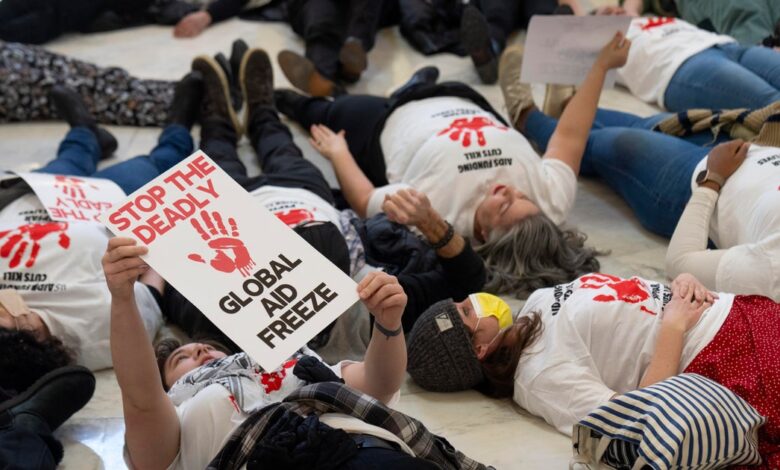Proposed foreign aid cuts could lead to millions of HIV deaths, study estimates

Proposed cuts to global foreign aid, including slashing programs in the United States, could have dire consequences for the fight against HIV/AIDS, leading to millions of deaths and a surge in infections worldwide. A recent study published in The Lancet HIV journal paints a grim picture of what the future could hold if funding continues to dwindle.
The study, which focused on 26 countries that rely on foreign aid for HIV resources, revealed that between 4.4 million to 10.8 million additional new HIV infections and 770,000 to 2.9 million HIV-related deaths could occur by 2030 in low- and middle-income countries. This alarming forecast underscores the pivotal role that international funding plays in curbing the spread of HIV and saving lives.
The United States, along with the U.K., France, Germany, and the Netherlands, are the primary contributors to global HIV funding, with the U.S. alone committing $5.71 billion in 2023. However, recent announcements of aid reductions by donor nations, including the U.S., have raised concerns about the future of HIV/AIDS programs. The Trump administration froze foreign aid spending, including funding for HIV/AIDS programs, and the Department of Government Efficiency (DOGE) is leading major cutbacks.
“The current cuts to PEPFAR and USAID-supported programs have already disrupted access to essential HIV services, including antiretroviral therapy and HIV prevention and testing,” said Debra ten Brink, co-lead author of the study.
PEPFAR, launched under President George W. Bush in 2003, has been instrumental in the global HIV/AIDS response, saving the lives of 26 million people. However, its funding has been halted, further exacerbating the crisis. The sudden withdrawal of funding has prompted warnings from experts, including the UNAIDS chief, who cautioned that without adequate support, millions will die, and the global AIDS pandemic will resurge.
Dr. Céline Gounder, CBS News medical contributor, emphasized the irreplaceable role that U.S. contributions play in supporting HIV programs worldwide. She highlighted the heavy reliance of many countries on U.S. funding for HIV diagnosis, treatment, and prevention, stressing that no other country can easily fill the void left by the cuts.
As the world grapples with the devastating impact of reduced foreign aid on HIV/AIDS programs, urgent calls for reconsideration and restoration of services are being made. The global fight against HIV/AIDS hangs in the balance, with the need for sustainable financing and continued support more critical than ever. The consequences of failing to address these funding challenges could be catastrophic, not only for regions like sub-Saharan Africa but for the global community as a whole.





